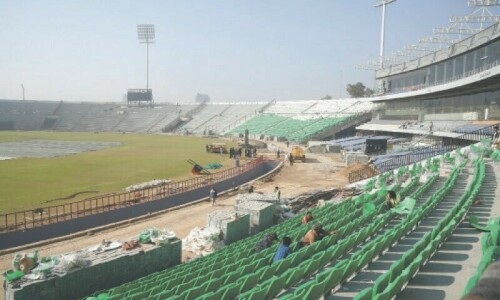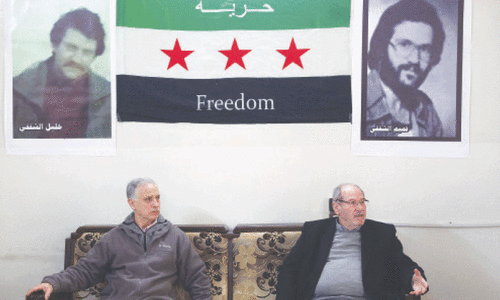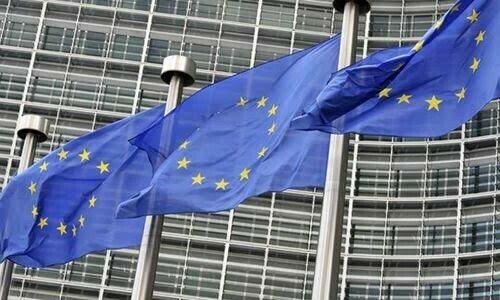Despite its many challenges, Karachi remains a preferred destination for those seeking employment and aspiring to climb the social ladder in Pakistan. Its contribution to the national economy is unmatched, accounting for 25 per cent of the GDP and generating about 50pc of the country’s revenue — more than the next ten largest cities combined.
The depth and breadth of the market in the city continue to surprise even its residents. Given its significant role, is there any justification for its perpetual neglect?
More importantly, can a self-propelled, rudderless Karachi continue to support Pakistan’s economy despite being wronged in every way? Possibly. But is it wise to test the resilience of a city so large, divided and yet crucial to the country’s future? The federal and Sindh governments, for some reason, seem willing to take this dangerous gamble.
A budget serves as a key indicator of a government’s priorities. The recently announced budgets of both the federal and Sindh governments demonstrate a continued lack of sensitivity towards Karachi and its myriad issues.
The resource-starved federal government, striving to balance the International Monetary Fund’s advice with the demands of economic management without further alienating its political base, had to reduce the budget allocation for the Public Sector Development Programme (PSDP).
This cut, amounting to reportedly Rs250 billion, brings the PSDP down from its original Rs1.4 trillion to Rs1.15tr, heightening the risks to the already meagre funds allocated for development projects in Karachi for FY2025.
The city is expected to contribute around 60pc (Rs7.78tr) of the targeted Rs12.97tr in tax revenues in FY25
The Sindh government, which has been relatively well-funded thanks to the resource-sharing arrangement under the National Finance Commission (NFC) award, appears increasingly hostile towards Karachi, the provincial capital.
Chief Minister Murad Ali Shah, in power for over a decade, is well-informed about the city’s problems and their solutions, having commissioned the comprehensive ‘Karachi Diagnostic Report (KCD)’ from the World Bank. Despite having detailed advice from experts, it remains unclear why he has not acted on recommendations presented in the report.
Chief Minister Shah, along with several other key leaders of the PPP, was approached for input, but only Senator Saleem Mandviwalla responded within the deadline.
Mr Mandviwalla, the former provincial finance minister and current Chairman of the Senate Standing Committee on Finance and Revenue, expressed concern over the issue. “I am unhappy. Karachi needs more budget and more attention in every conceivable area,” he stated.
Younus Dagha, former bureaucrat and caretaker minister, currently Chairman of the Policy Research and Advisory Council (PRAC), associated with KCCI, has done exceptional work on Karachi, making a strong evidence-based case to pay attention and fund development here.
Responding to a query in this regard, he stated, “In the 2024-25 budget, Karachi is expected to contribute around 60pc (Rs7.78tr) of the targeted Rs12.97tr in tax revenues. Sindh will receive Rs1.98tr (75pc of its budget) in federal transfers and grants, with another 13pc (Rs350bn) from the Sales Tax on Services, mostly collected in Karachi.
“The city also generates significant revenue from the infrastructure development cess (Rs170bn) and other taxes. Despite this, only 5pc (Rs160bn) of Sindh’s budget is allocated to local bodies, with Karachi Metropolitan Corporation (KMC) receiving just Rs34bn (1.1pc). In contrast, transfers to local governments in Khyber Pakhtunkhwa and Punjab are 17.7pc and 15pc, respectively.
“Urban areas, especially Karachi, need more infrastructure investment. Despite being 35-40pc of Sindh’s population, Karachi received only 9pc of the Annual Development Plan in 2023-24 and is budgeted for 20pc in 2024-25, exacerbating a $10bn infrastructure deficit identified by the World Bank in 2017.”
A public policy specialist, speaking privately, expressed his frustration with the gap between the political class’s claims and actions. “The neglect appears to stem from a political turf war between the PPP and MQM. Both parties use the city’s lack of development as political ammunition against each other.
“The PTI government also pledged a significant budget for Karachi, but this promise proved hollow, as the city remained in a deplorable state throughout its about four-year tenure,” he stated.
“Perhaps the percentage of kickbacks in infrastructure projects procurement and development has reached unsustainable levels, leaving nothing for the actual construction work,” he speculated.
Rashid Amjad, a senior economist, stated that Karachi, Pakistan’s richest and largest city, should raise resources on its own, like other global megacities such as New York, London, and Mumbai. When reminded of the city’s contribution to GDP and public finance, he explained: “What I was referring to is revenue raised by city authorities, KMC, Karachi Development Authority, Defence Housing Authority and Pakistan Employees Cooperative Housing Society, as local taxes.”
Majyd Aziz, former Karachi Chambers of Commerce and Industry president, attributed Karachi’s neglect to a lack of ownership by major national political parties and others, including the business associations, but emphasised that the government bears the ultimate responsibility.
Mr Aziz criticised the meagre allocations, likening Karachi to a golden goose. “The federal government expects the golden egg in the morning while the Sindh government demands another golden egg at night.”
Published in Dawn, The Business and Finance Weekly, July 8th, 2024

















































Dear visitor, the comments section is undergoing an overhaul and will return soon.